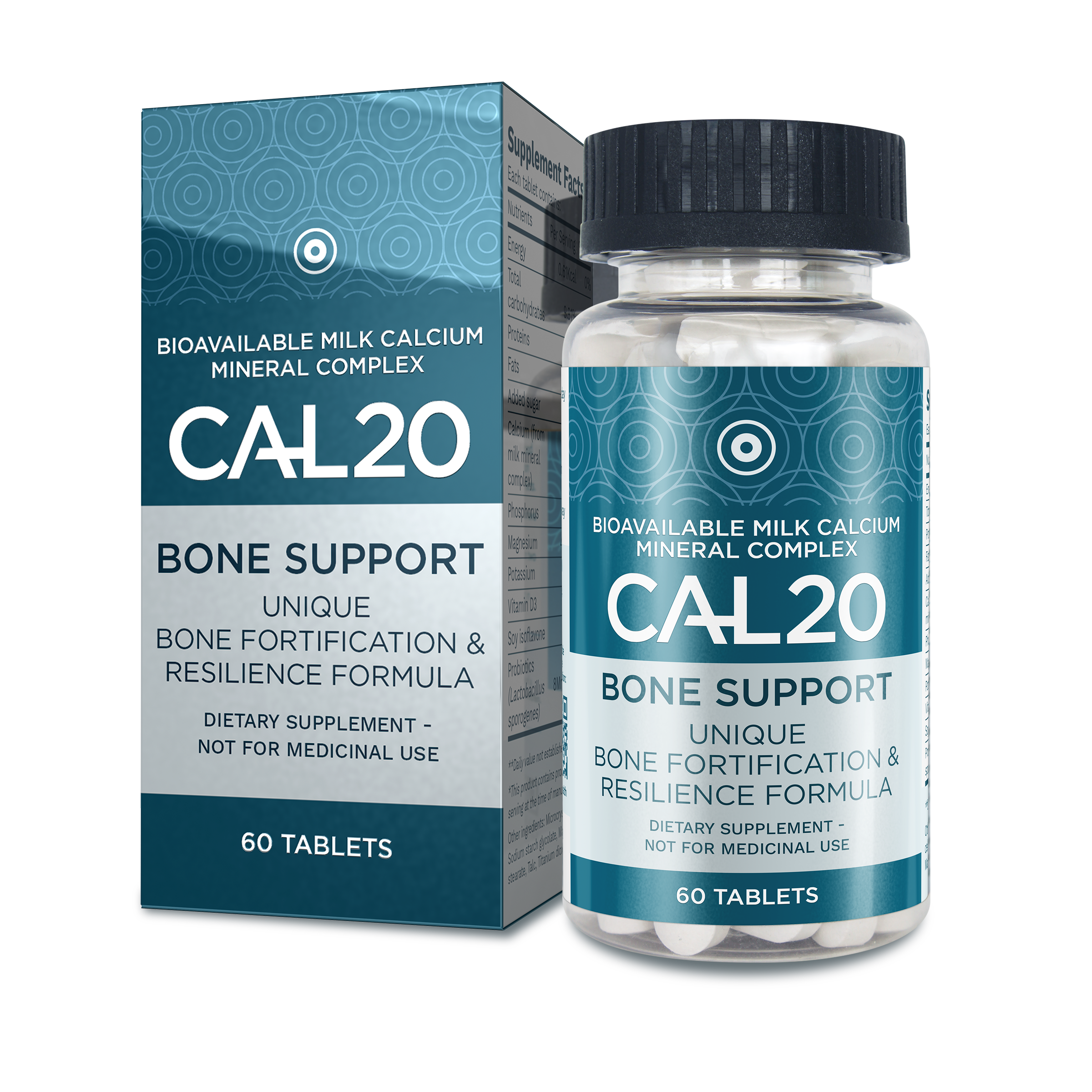For decades, calcium has been the supplement that you think of when you think about bone health. But until fairly recently, calcium supplements weren’t very subtle, and didn’t work very well. And most of them are still around, riding out the momentum they’ve developed over the years.
In this article, we catch up with Dr Duncan Carmichael MBChB (SA), MRCGP (UK), Dip. Anti-aging (Brussels) and author of Younger for Longer: How You Can Slow the Ageing Process and Stay Healthy for Life, to talk about CAL20 and how calcium supplements got smart.
Thanks for your time, Doctor Carmichael. Let’s start with the Western attitude towards supplements, which seems to be “more is better”. If an athlete can take 5g of creatine to increase performance, for example, why not take 20g?
Right, it’s a very easy and understandable conclusion to make that if something is good for you, more of it must be better for you, but that’s just not the way our bodies work.
The systems that maintain your body’s health are trying to find balance. If there’s too much of one thing in the body, it tries to transform it into something else, or eject it. Creatine, for example, has a maximum limit the body likes to maintain, and if you take more of it, you get no returns, or you get an upset stomach.
When it comes to calcium, back in the 1990s and 2000s, doctors were handing out doses of 1200 milligrams of calcium carbonate, which is blackboard chalk, and calcium citrate. And some people would take a double dose because of the “more is better” belief. That kind of blunt instrument approach just doesn’t work with calcium, because your body is more interested in maintaining blood calcium levels in your body than bone calcium levels, so it just shuttles extra calcium into other parts of your body, causing kidney stones, acidosis and calcification.
“A blunt instrument approach just doesn’t work with calcium”
I imagine we’re a bit smarter about it now?
We have now moved to a lower dose, natural, dairy-milk calcium mineral complex. A low dose being 275mg milligrams per tablet, about a quarter of what was given before. We have also combined the dairy calcium mineral complex with a supporting cast of elements that make sure the calcium is bioavailable, there’s no overspill, and the calcium gets into the bones, where it’s useful.
Who’s in the “supporting cast” of CAL20?
If we were to go through what’s in CAL20, we’ve three elements that help the calcium get out of the intestines and into the bloodstream. We have a low dose of vitamin D, probiotics, and supporting minerals, which all increase absorption of calcium into the bones.
In terms of CAL20 being a dairy-calcium supplement, have there been any reactions from those that are lactose intolerant?
Cal20 is dairy-extracted, but it isn’t really dairy. In the extraction process, lactose is left behind, and so is whey protein thus giving us the benefits of dairy calcium. We also get the benefits of the peptides from the dairy and the probiotics from the dairy, but we are not getting the dairy itself.
I’ve only met one person in my career who can’t take this sort of supplement, but those who are lactose intolerant could try it and just be on the lookout for a reaction. I think it’s more likely that if you are highly allergic to milk, to expect a reaction.
Thanks again for taking the time with us, Doctor Carmichael. I think that sums up pretty succinctly why a low-dose, bioavailable approach is a lot smarter than trying to cram double doses of calcium carbonate into your body.
Absolutely. The same is true about everything. One of the best truisms in life is “Everything in Moderation”. If you stick to that, you can’t go far wrong.
To read more about Osteopenia and Osteoporosis, two conditions that can result from poor bone support, you can read up on how osteoporosis is a silent killer.




